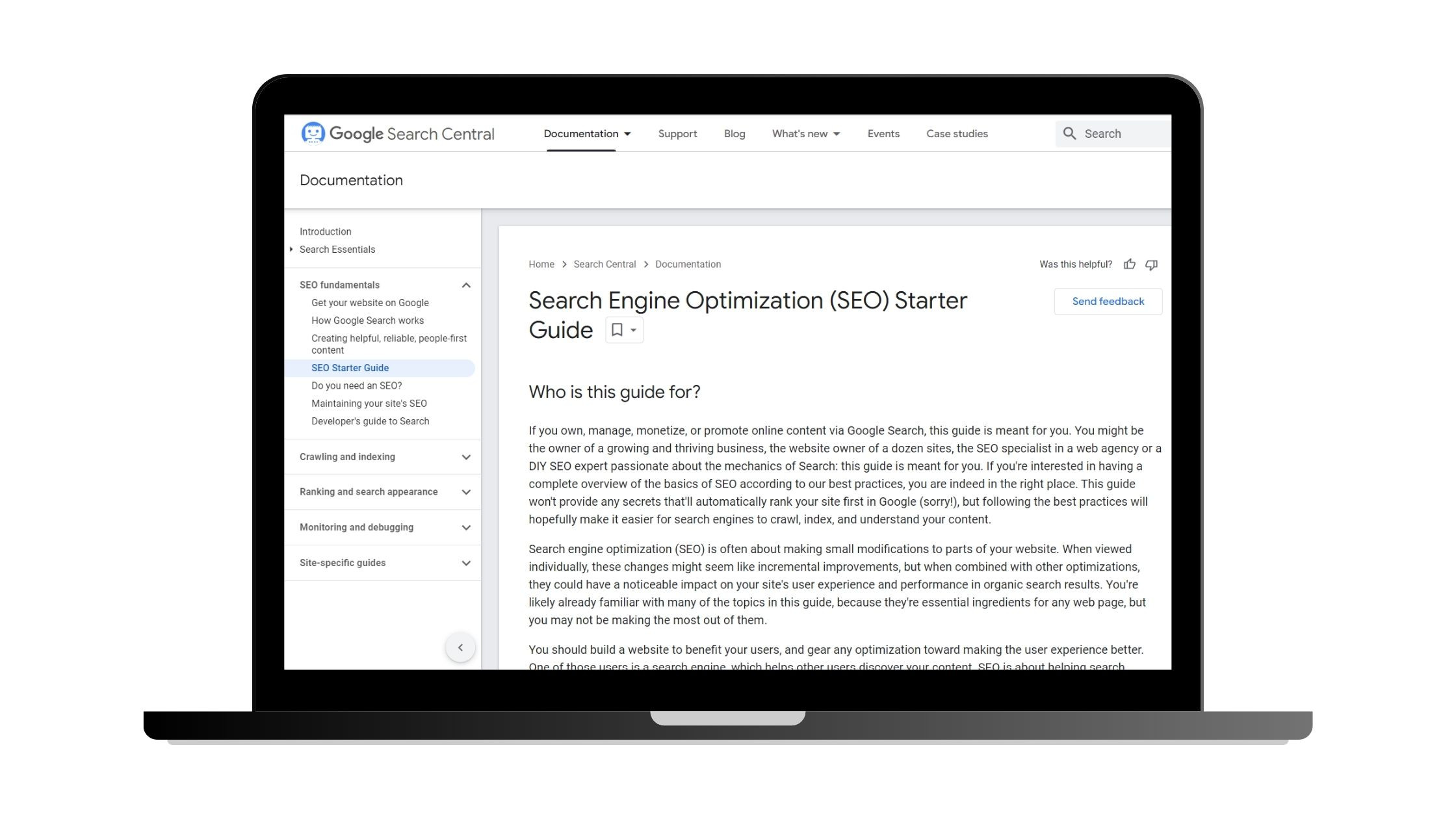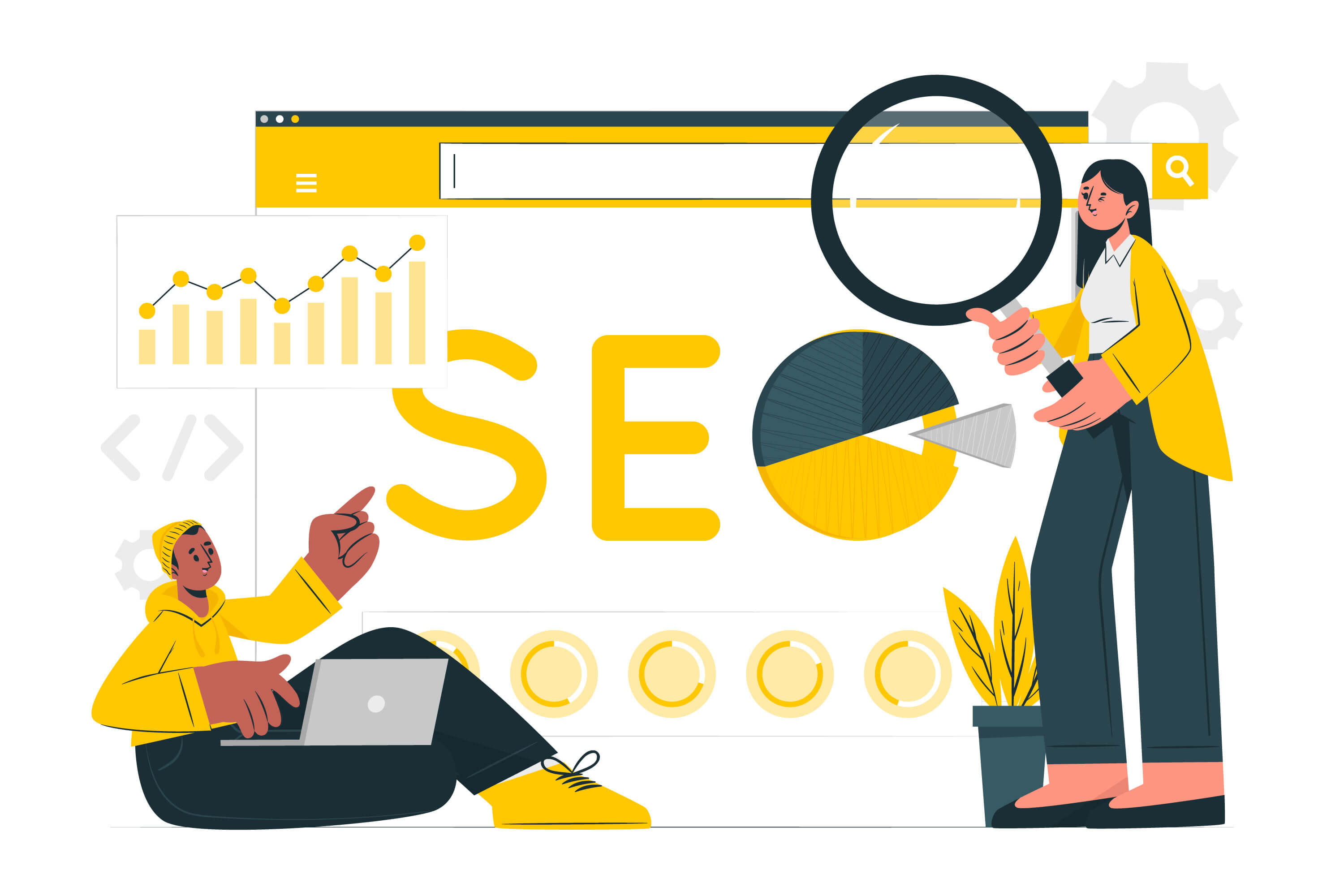

In today's digital age, search engine optimization (SEO) plays a crucial role in the success of any online business, particularly for e-commerce websites. SEO is the practice of optimizing a website to improve its visibility and ranking on search engine results pages (SERPs). For e-commerce businesses, having a strong online presence is vital as it directly impacts their visibility, organic traffic, and ultimately, their revenue. With millions of websites competing for attention on the internet, implementing effective SEO strategies becomes essential for e-commerce websites to stand out from the crowd.
E-commerce has witnessed exponential growth in recent years, revolutionizing the way people shop. With the advent of advanced technology, improved internet connectivity, and the increasing prevalence of mobile devices, online shopping has become a convenient and preferred method for consumers worldwide. This rapid growth of e-commerce presents immense opportunities for businesses to reach a global audience and expand their customer base. However, it also means facing intense competition. To thrive in this competitive landscape, e-commerce websites need to leverage SEO techniques to enhance their visibility, attract potential customers, and drive conversions.

Running an online store offers numerous advantages over traditional brick-and-mortar retail. First and foremost, an online store allows businesses to tap into a vast global market. Unlike physical stores limited by geographical boundaries, e-commerce websites can reach customers from all corners of the world. This broad customer base provides an excellent opportunity for businesses to scale up and increase their sales. Additionally, an online store operates 24/7, enabling customers to make purchases at their convenience, regardless of time zones or holidays. This flexibility not only enhances the customer experience but also boosts revenue potential for e-commerce businesses. Furthermore, with reduced overhead costs compared to physical stores, online retailers can often offer competitive prices, attracting cost-conscious consumers. Overall, having an online store opens up new avenues for growth, profitability, and customer engagement.

SEO for e-commerce refers to the process of optimizing an online store's website and product pages to improve its visibility and ranking on search engine results. The primary purpose of implementing SEO strategies for e-commerce is to drive organic traffic to the website, increase the chances of converting visitors into customers, and ultimately boost sales. By optimizing various on-page and off-page elements, such as meta tags, product descriptions, site architecture, backlinks, and user experience, e-commerce websites can improve their search engine rankings, appear higher in relevant search queries, and attract potential customers who are actively looking for the products they offer.

While the core principles of SEO remain the same, there are notable differences between optimizing e-commerce websites and content-focused websites. E-commerce SEO involves optimizing product pages, category pages, and other transactional pages that aim to generate sales. On the other hand, content-focused websites, such as blogs or news sites, focus on optimizing informational content to drive traffic and engage users. Additionally, e-commerce SEO heavily relies on keyword research to identify high-intent keywords that align with the products being sold. Content-focused SEO, on the other hand, focuses on targeting informational keywords to provide valuable content to the target audience. Furthermore, e-commerce websites often face challenges related to duplicate content, product variations, and inventory management, which require specialized SEO techniques to address effectively.

To succeed in e-commerce SEO, it is crucial to understand search engine guidelines and align optimization strategies with them. Search engines like Google provide guidelines to ensure that websites are optimized ethically and provide a positive user experience. These guidelines cover various aspects, including website structure, content quality, backlink practices, and mobile-friendliness. Adhering to these guidelines helps e-commerce websites avoid penalties and maintain a good standing in search engine rankings.
Understanding buyer intent is another critical aspect of e-commerce SEO. Buyer intent refers to the underlying motivation or purpose behind a user's search query. By analyzing and understanding different levels of buyer intent, e-commerce websites can tailor their optimization strategies to target specific customer needs and preferences. For example, optimizing product pages with keywords that indicate high purchase intent, such as "buy," "discount," or "best price," can attract users who are ready to make a purchase. Understanding buyer intent helps e-commerce websites optimize their content, product descriptions, and call-to-actions to match the needs and expectations of their target audience, ultimately leading to higher conversion rates.
Overall, SEO is a fundamental component of any successful e-commerce strategy. By understanding the importance of SEO, recognizing the unique aspects of optimizing e-commerce websites, and aligning with search engine guidelines and buyer intent, online retailers can enhance their visibility, attract targeted traffic, and achieve sustained growth in the highly competitive e-commerce landscape.

Keyword research is a crucial step in optimizing SEO for e-commerce websites. It helps identify relevant and popular keywords that can drive targeted traffic and improve search engine rankings.
Identifying relevant and popular keywords: When conducting keyword research for SEO for e-commerce, it is essential to find keywords that are highly relevant to your products and have significant search volume. By understanding the search behavior of your target audience, you can uncover the keywords they are using to find products similar to yours.
Understanding informational and commercial keyword intent: E-commerce SEO requires a deep understanding of keyword intent. Informational keywords are used when users are looking for information or research, while commercial keywords indicate an intention to make a purchase. By targeting both types of keywords, you can attract users at different stages of the buying process.
Tools like Ubersuggest and AnswerThePublic can assist in keyword research for SEO for e-commerce websites.
Optimizing product pages is crucial for improving search engine rankings and attracting organic traffic to your e-commerce website.
Importance of product descriptions: Product descriptions play a vital role in e-commerce SEO. By including relevant keywords in your product descriptions, you can enhance your website's visibility and ranking for those keywords. Furthermore, well-crafted product descriptions can entice users to make a purchase by highlighting the unique features and benefits of your products.
Optimizing images for SEO: Images are an essential element of e-commerce websites. To optimize them for SEO, it is important to use alt tags and captions that include relevant keywords. Additionally, keeping image sizes small helps improve website load times, contributing to a better user experience and higher search engine rankings.
Leveraging customer reviews: Customer reviews provide valuable information to potential buyers and can significantly impact conversion rates. By showcasing customer reviews on your product pages, you not only provide social proof but also enhance the SEO of your e-commerce website. Search engines recognize the value of user-generated content and consider it in their ranking algorithms.
A user-friendly website is essential for both user experience and SEO. Several factors contribute to creating a website that is easy to navigate and provides a positive user experience.
Enhancing user experience (UX): A user-friendly e-commerce website should have a clear and intuitive navigation structure. It should be easy for visitors to find products, browse categories, and complete purchases. By prioritizing user experience, you can improve engagement and encourage repeat visits.
Core Web Vitals and its impact on SEO: Core Web Vitals are a set of metrics that measure the overall user experience of a website. These metrics include Largest Contentful Paint (LCP), Cumulative Layout Shift (CLS), and First Input Delay (FID). Optimizing these metrics is crucial for SEO as search engines prioritize websites that provide a seamless and fast user experience.
Improving site load time, minimizing interference from ads, and implementing clear CTAs: Website load time is a crucial factor in user satisfaction and search engine rankings. By optimizing site speed, minimizing interference from intrusive ads, and implementing clear and compelling calls-to-action (CTAs), you can improve user engagement and increase conversions.
Long-tail keywords play a significant role in SEO for e-commerce websites. These keywords are more specific and have less competition, allowing you to target niche audiences and attract highly relevant traffic.
Definition and value of long-tail keywords: Long-tail keywords are longer and more specific search phrases that reflect user intent more accurately. While they may have lower search volume, they often have higher conversion potential.
Finding long-tail keywords using tools like Ubersuggest: Keyword research tools like Ubersuggest can help identify long-tail keywords related to your products or industry. These tools provide insights into search volume, keyword difficulty, and related keyword suggestions, enabling you to optimize your e-commerce website for these targeted keywords.
Prioritizing less competitive long-tail keywords: With e-commerce SEO, it's essential to prioritize long-tail keywords that have lower competition but still have a reasonable search volume. By targeting these keywords, you can increase your chances of ranking higher in search engine results and attracting relevant traffic to your e-commerce website.
A well-structured URL is not only user-friendly but also helps search engines understand the content and relevance of your web pages.
Enhancing user experience and SEO: Implementing a simple and descriptive URL structure improves user experience and makes it easier for visitors to navigate your e-commerce website. By incorporating relevant keywords into your URLs, you can also enhance the SEO value of your web pages.
Avoiding stop words and prioritizing readability: When creating URLs for your e-commerce website, it is best to avoid unnecessary stop words, such as "and," "the," or "of." These words can make URLs longer and less readable. Instead, prioritize concise and keyword-rich URLs that accurately describe the content of the page.
Utilizing breadcrumbs for navigation: Breadcrumbs are a navigational aid that shows users the hierarchical structure of your website. They not only help users understand their current location but also provide additional context to search engines. Implementing breadcrumbs improves the user experience and enhances the SEO of your e-commerce website.
By following these SEO best practices for e-commerce, you can optimize your website, attract targeted traffic, and improve search engine rankings. Implementing thorough keyword research, optimizing product pages, ensuring a user-friendly website, leveraging long-tail keywords, and implementing a simple URL structure are essential steps in achieving success in the competitive world of e-commerce.
In conclusion, SEO is crucial for the success of e-commerce websites. By implementing best practices such as thorough keyword research, optimizing product pages, ensuring a user-friendly website, leveraging long-tail keywords, and implementing a simple URL structure, you can improve search engine rankings, attract targeted traffic, and drive more conversions. It is important to stay updated with the latest SEO trends and continuously adapt your strategies to stay ahead in the competitive e-commerce landscape. With effective SEO, you can maximize visibility, reach your target audience, and achieve sustained growth for your online store.
To do SEO for an e-commerce website, start by conducting keyword research to identify relevant and popular keywords. Optimize product pages with keyword-rich content and compelling product descriptions. Ensure a user-friendly website with intuitive navigation and fast loading times. Leverage customer reviews and optimize images with alt tags. Implement a simple URL structure, prioritize long-tail keywords, and stay updated with SEO best practices.
SEO is essential for an e-commerce website in 2023 because it helps improve search engine rankings, attract organic traffic, and increase visibility in a highly competitive online market. Effective SEO strategies can lead to higher conversion rates, better user experience, and increased revenue. With more people relying on search engines to find products, investing in SEO is crucial for the success of an e-commerce website.
Some of the best SEO strategies for e-commerce websites include performing thorough keyword research, optimizing product pages with keyword-rich content, enhancing user experience and site speed, leveraging customer reviews, prioritizing long-tail keywords, implementing a simple URL structure, and staying updated with SEO trends and best practices.
To do SEO for an e-commerce website, you can start by conducting keyword research, optimizing product pages with relevant keywords, ensuring a user-friendly website, optimizing images and using alt tags, leveraging customer reviews, implementing a simple URL structure, and staying updated with SEO best practices. Consider hiring an SEO specialist or utilizing SEO tools and resources to maximize your efforts.
Search engine optimization (SEO) for e-commerce refers to the process of optimizing an online store's website and content to improve its visibility and rankings in search engine results pages. It involves strategies and techniques that aim to attract organic traffic, increase conversions, and enhance the user experience on e-commerce websites.
To do SEO for an e-commerce website, start by conducting keyword research to identify relevant keywords. Optimize product pages with keyword-rich content, meta tags, and headings. Improve website navigation, site speed, and mobile responsiveness. Implement structured data markup, optimize images with alt tags, and build high-quality backlinks. Regularly update and optimize your website's content and stay up to date with SEO best practices.
Several e-commerce platforms offer good SEO capabilities, such as Shopify, WooCommerce (WordPress), Magento, and BigCommerce. However, the best platform for SEO ultimately depends on your specific needs and preferences. Consider factors like flexibility, customization options, ease of use, and SEO features when choosing an e-commerce platform.
Yes, SEO is worth it for e-commerce. It helps improve visibility, attract targeted organic traffic, and increase conversions. By optimizing your e-commerce website for search engines, you can gain a competitive edge, enhance the user experience, and drive more sales. Investing in SEO for your e-commerce business can deliver long-term benefits and a strong return on investment.
The best type of SEO depends on your specific goals and target audience. However, a comprehensive approach that combines both on-page and off-page SEO strategies tends to yield the best results. On-page SEO focuses on optimizing individual web pages with relevant content, keywords, meta tags, and internal linking. Off-page SEO involves building high-quality backlinks and establishing a strong online presence through social media, content marketing, and influencer outreach.
The salary of an e-commerce SEO professional can vary depending on factors such as experience, location, and the size of the company. Generally, salaries for e-commerce SEO specialists range from $40,000 to $100,000 per year, with more experienced professionals earning higher salaries.
Yes, you can do SEO on your own. Many resources, tutorials, and guides are available online to help you learn and implement SEO strategies. However, keep in mind that SEO requires continuous learning and staying updated with industry changes. For complex or highly competitive scenarios, it may be beneficial to hire an experienced SEO professional or agency.
SEO itself is not inherently free, as it often requires time, effort, and resources. However, you can implement basic SEO practices without incurring additional costs. For more advanced SEO techniques or to save time, you may need to invest in tools, resources, or hire professionals, which can involve expenses.
The first step in e-commerce SEO is conducting thorough keyword research. Identify relevant keywords and search phrases that your target audience is using to find products similar to yours. This will lay the foundation for optimizing your product pages, content, and overall website structure.
The four important stages in SEO are keyword research, on-page optimization, off-page optimization, and monitoring and analysis. These stages involve understanding your audience and competitors, optimizing your website's content and technical aspects, building quality backlinks, and continuously monitoring and analyzing performance to make data-driven improvements.
The three steps to successful SEO are research, optimization, and tracking. Research involves understanding your target audience, conducting keyword research, and analyzing competitors. Optimization involves implementing on-page and off-page SEO strategies to improve website visibility and rankings. Tracking involves monitoring key metrics, analyzing data, and making adjustments to your SEO strategies based on performance insights.